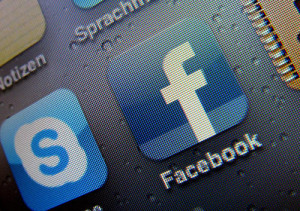 Every Thursday, I will republish my best articles from Technorati.com. Since Technorati redesigned its website and is under new managements, tens of thousands of articles that were previously published on the site are no longer available. I have been given explicit permission to republish my work on my own website.
When talking to 1000 social media users about how they felt about liking brands on Facebook, market research firm Lab42 found that 50% of them said that the Facebook page is more useful than the website. Sure, that statistic can be interpreted to mean that social media users prefer the social media profiles of brands to the website, or that social media users just like them better. However, the key word is 'useful', and no one has yet taken the time to figure out why Facebook pages are considered more useful, or how to make one's website more useful than before.
Every Thursday, I will republish my best articles from Technorati.com. Since Technorati redesigned its website and is under new managements, tens of thousands of articles that were previously published on the site are no longer available. I have been given explicit permission to republish my work on my own website.
When talking to 1000 social media users about how they felt about liking brands on Facebook, market research firm Lab42 found that 50% of them said that the Facebook page is more useful than the website. Sure, that statistic can be interpreted to mean that social media users prefer the social media profiles of brands to the website, or that social media users just like them better. However, the key word is 'useful', and no one has yet taken the time to figure out why Facebook pages are considered more useful, or how to make one's website more useful than before.
Lab42 also found in this survey that the biggest motivators for liking a brand on Facebook were promotions/discounts, free giveaways, and customer loyalty, in that order. Brand websites rarely have the first two, and are primarily "brochureware", bland marketing jargon that's meant to sell the visitor on the product or service. Judging from the biggest motivators for liking a brand, most social media users are already sold on the brand and its product or service. On the one hand, this should make it easier for brands to learn about their customer base, since it seems that the Facebook fan base would reflect who's buying the product and service. On the other hand, Facebook fans using the pages in this manner could make it difficult for brands to up sell, or even buy at all, since it seems that most fans are only buying when there's a discount, or are just grabbing the free stuff.
This is further shown in this survey, where almost half of social media users said they liked a brand, but had no intention of buying from that brand. The reason? They only wanted free stuff (52%), or they like the product and can't afford it (46%), or they only liked the brand to help out a friend (24%). Perhaps Facebook pages are best at giving consumers the best of their world; a free product or a great coupon. So, how do brands get the best of their world, whether it be from Facebook or from the website?
The biggest thing that I would recommend is business blogging. Stop all the brochureware on your website, and put something on there that's actually for the customer and about the customer. Consider that over 44% of small businesses don't even have a website! Also consider that even though 60% of businesses have a business blog, 65% of them haven't updated in over a year! No wonder people don't find them useful! There's nothing there for them! And these statistics don't include those that do blog regularly, but only update about new products and company updates. Customers don't care about that. It's no surprise they're going to Facebook to get a free sample or a coupon. At least a free sample or a coupon gets the customer what he or she needs to solve their pain point.
The next thing to do to make your website more useful, after you have the business blog, is to create a resource center. This resource center can include white papers, ebooks, webinars, articles, free content that will actually help prospects and potential customers move through your buying process and actually consider your for something more than a discount. The best thing about a resource center? It's free, and you can actually learn more about your prospects, what they actually need from you, all while building trust and a customer relationship. After all, the number one thing, from the Lab42 survey, that brands could do to get more likes on Facebook (and retain them)?
More giveaways!
Oh look, you have all this awesome, engaging, relevant content that's for free that you can share, content like buying guides, how-to's, tip sheets, checklists. You know, stuff that will not only help customers, but will go much farther in nabbing and retaining fans than a coupon or a free shirt.
Do those two things, and you can actually improve both your website and your Facebook page. Sounds easy enough.
